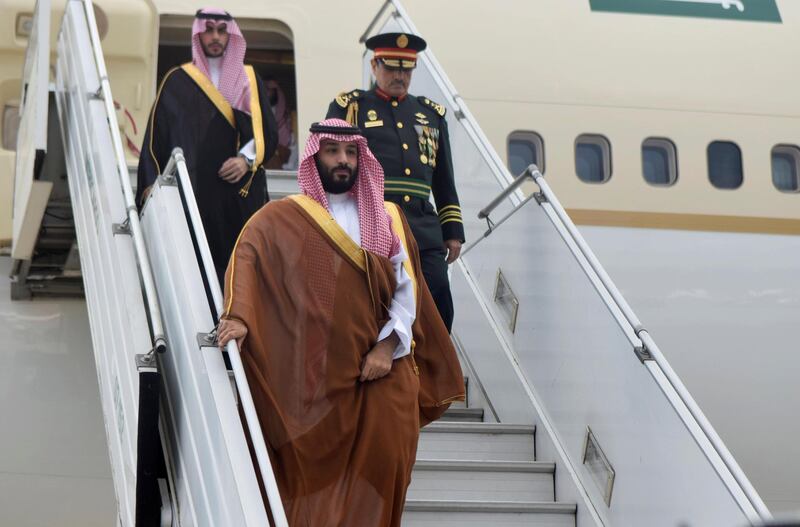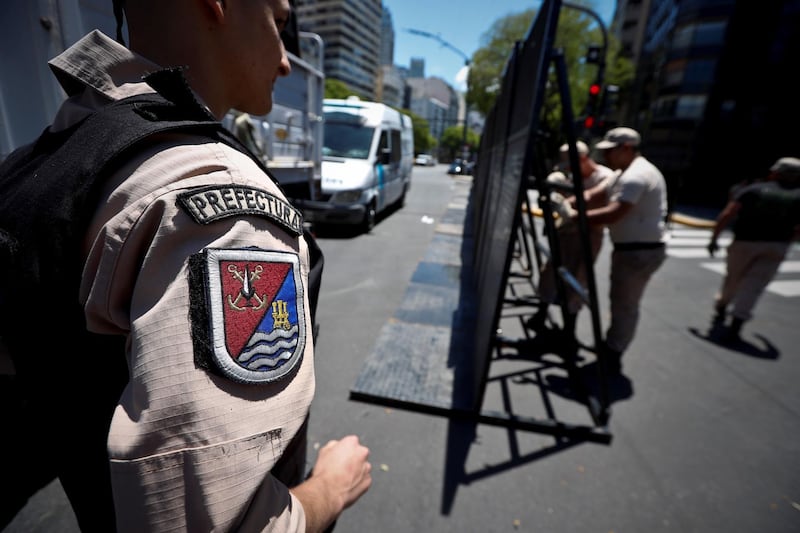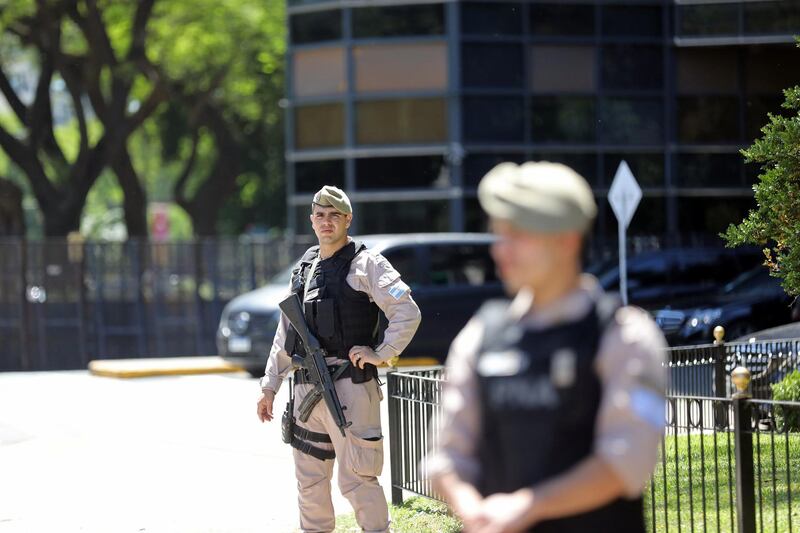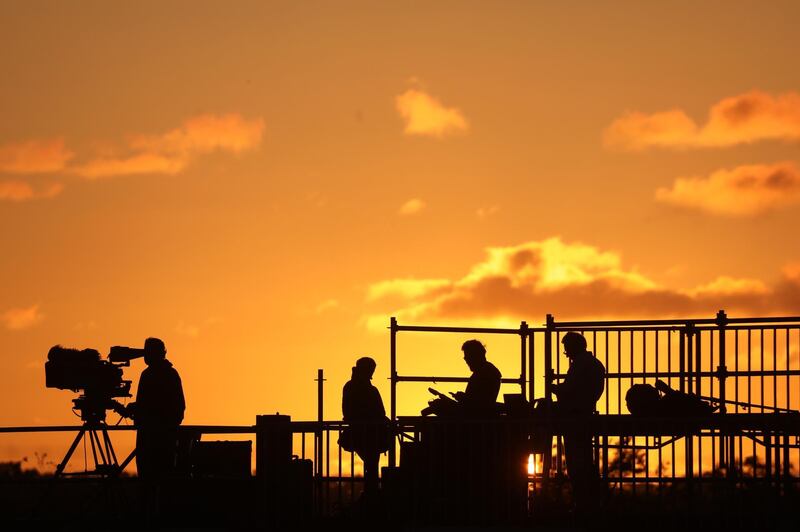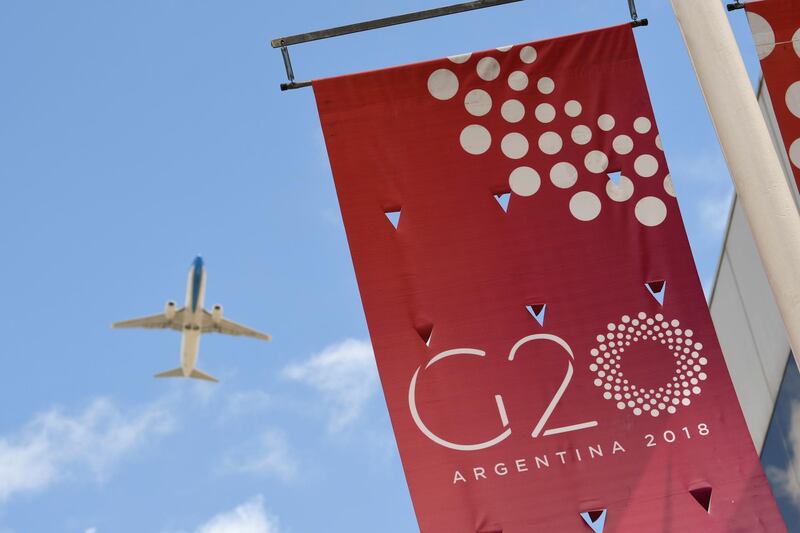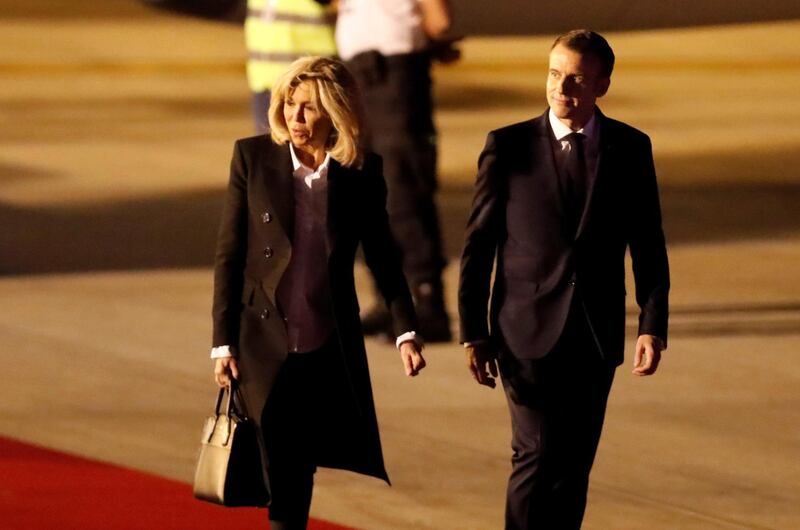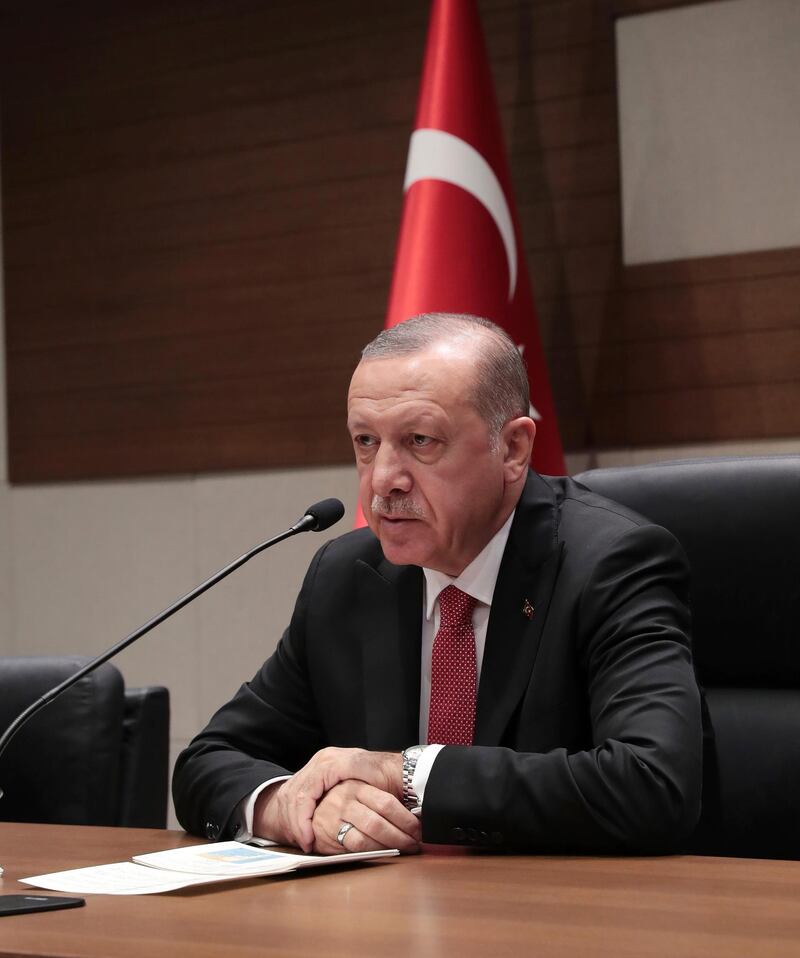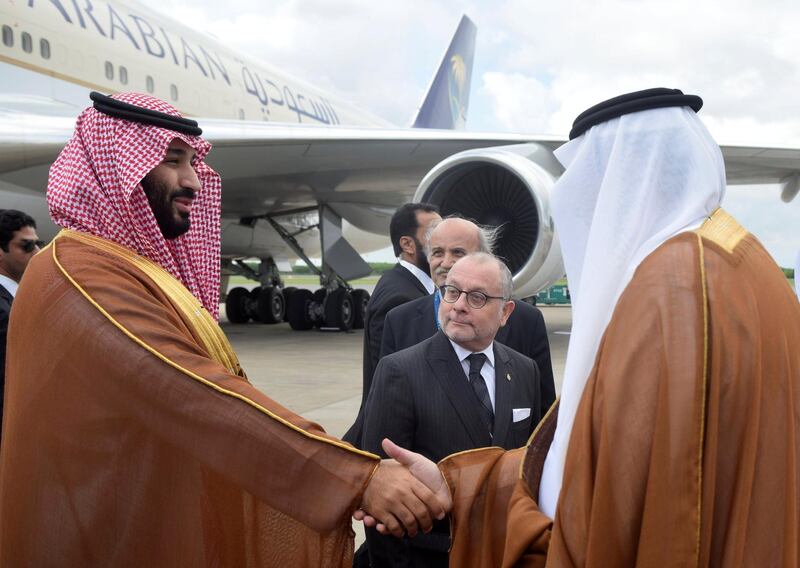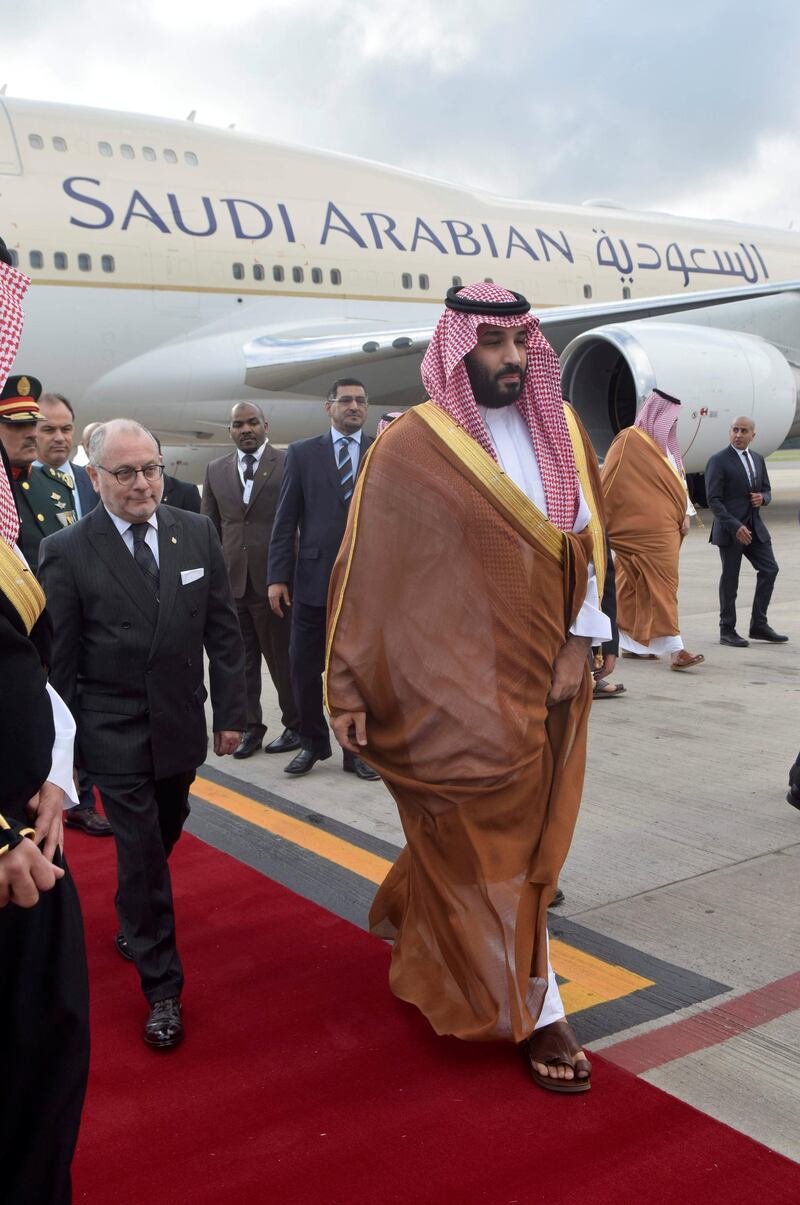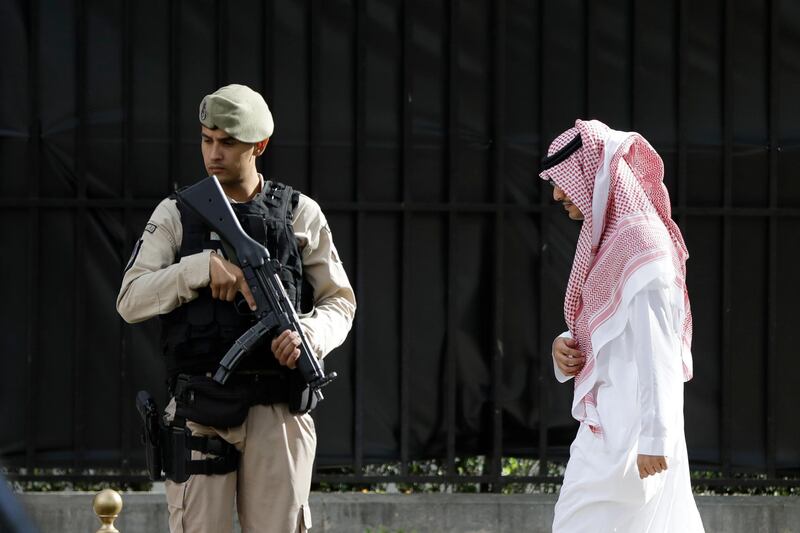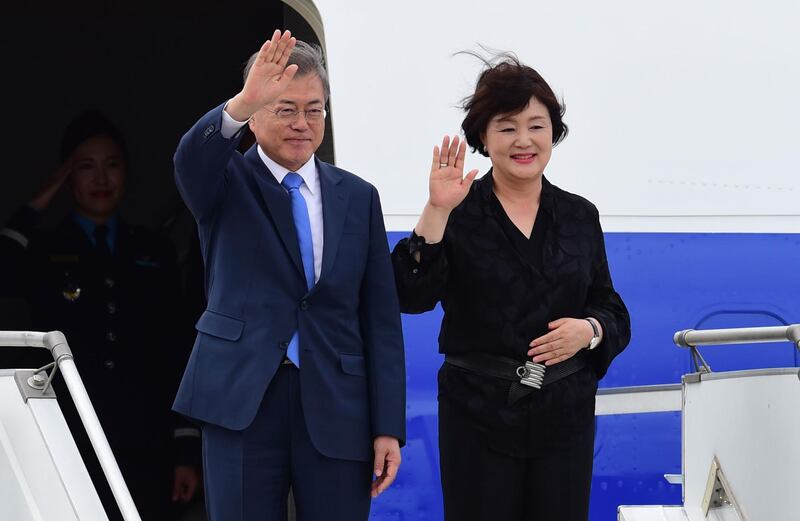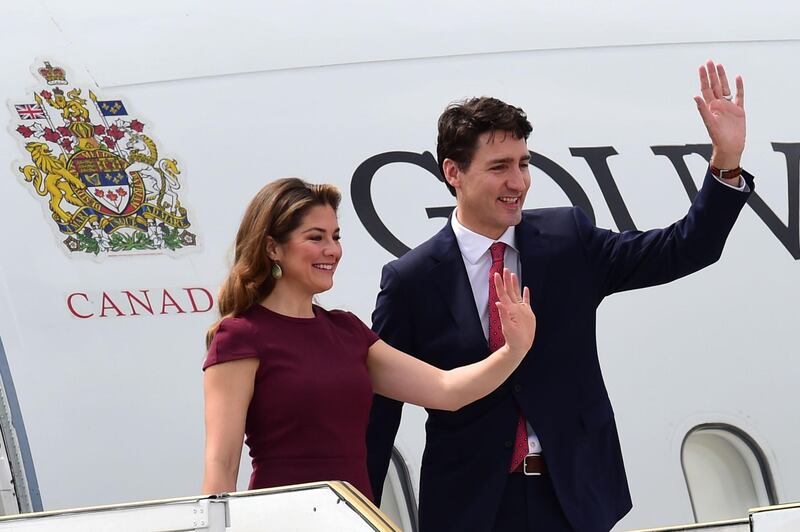US President Donald Trump spent the week leading up to the G20 summit in Argentina playing golf and sending angry-toned tweets.
The latest - tweeted en route to Buenos Aires - confirmed he will no longer meet one-on-one with Russian leader Vladimir Putin citing Russia's capture of Ukrainian ships and sailors in the Black Sea.
White House Press secretary Sarah Sanders said Mr Trump made the decision after discussions with Secretary of State Michael Pompeo, Chief of Staff John Kelly and National Security Adviser John Bolton.
She said that she didn’t know if Mr Trump and Mr Putin had spoken but said that there was contact about the cancellation between the two governments.
Mr Putin orchestrated a showdown with Ukraine by asserting Russian control of the shipping lanes around Crimea, seizing three vessels and holding more than 20 Ukrainian sailors.
The other leaders of the leading economies arriving in the Argentine capital for the two-day summit could hardly be described individually as in good cheer.
Meetings involving President Xi Jinping, Crown Prince Mohammed bin Salman and President Emmanuel Macron will be closely watched. The first ever three-way meeting between the US, India and Japan at the summit could take an emerging axis in the Asia-Pacific a step closer.
With the omens not promising, diplomats are questioning if President Trump wants to be there at all. “It would not be surprising if he left as quickly as he can,” said one Western official. The White House point-blank told many countries not to expect bilaterals with the US leader at the risk of him running out of patience, as he did at the G7 in France earlier this year.
Scheduled formal meetings with Turkey and South Korea were also cancelled aboard Air Force One on Thursday, the White House said.
The state of US relations with China and Russia demands face-to-face talks.
_______________
Read more:
Editorial: G20 talks should be followed by meaningful action
QuickTake: G20 leaders meet in Argentina to address economic issues
Saudi Crown Prince Mohammed bin Salman arrives in Argentina for G20 summit
G20 needs to act swiftly to avert economic slowdown, Largarde warns
_______________
The Trump-Putin confab may have answered the question what does Mr Putin want after initiating a high profile clash – Ukraine declared martial law in response – on the eve of his trip.
Dmitri Trenin, an analyst at the Carnegie-Moscow Centre, said Mr Putin expects, as he demands of all US counterparts, parity of treatment as a minimal starting point. Even so, Moscow’s early hopes of forging tight ties with Mr Trump are now largely dashed.
“Putin and Trump speak the same language of national interest and are fully comfortable with transactional relations. Both men eschew politics based on ideology and moral values,” he said. “Trump is actively disrupting the post–Cold War US-led liberal global order, which Putin also vehemently rejects.
“Over the past two years, Moscow has been disappointed by Trump’s ability, and even willingness, to improve relations with Russia. Today, the Kremlin is anything but a Trump fan club. They see the US president as a self-centred person, essentially guided by instincts, who prides himself on making deals.”
With the price of oil touching lows of $50 a barrel, Crown Prince Mohammed, who was one of the first to arrive, has an opportunity to emerge from the shadow of the Jamal Khashoggi murder. The trip also comes in the midst of intensifying diplomacy around the Yemen conflict. The crown prince is expected not only to hold important talks with Mr Putin but also Argentina’s President Mauricio Macri, the host, Theresa May, the British prime minister, Turkey’s Recep Tayyip Erdogan and Asian leaders. President Trump has signalled he “is open” to a get-together.
The head-to-head that should dominate global attention is the meeting with President Xi Jinping. In the grips of a trade war, President Trump used an interview with the Wall Street Journal on Monday to threaten to raise tariffs on $200 billion of goods to 25 per cent. Later in the week he called on his officials to bring him more tariffs on automobiles.
Mr Trump set out to woo Mr Xi as soon as he was elected. The president still conspicuously refers to the Chinese leader as his friend. Laurence Kudlow, the White House economic adviser, has said there is a “good possibility” of an understanding being struck.
For European and other leaders concerned with global economic stability, a breakthrough on this front would be the most important gain from the long trip to Argentina.
Liu He, the Chinese pointman on trade, signalled that Beijing’s leaders were travelling to secure a high-level deal. “No one ever emerged as a winner from a trade war,” he told an audience in Hamburg, Germany. “Our approach, therefore, is to seek a negotiated solution.”
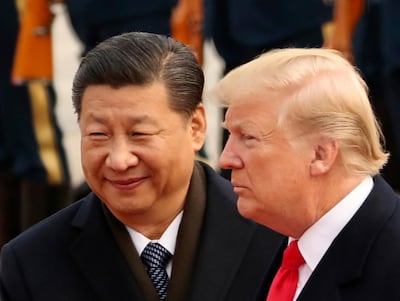
Experts warn the two sides remain far apart, pointing to the tensions between the two delegations at the Asean summit in Singapore earlier this month. “The failure of leaders to come to terms as a result of US-China trade tensions suggests further fragmentation and heated competition in the region. It also augurs poorly for the G20 summit in Argentina this coming weekend, as well as for the meeting that presidents Trump and Xi are scheduled to hold on the sidelines of that summit to work out their differences on trade,” concluded Matthew Goodman of the Centre for Strategic and International Studies.
Adam Triggs, a researcher who has published an analysis of international meetings for the Brookings Institute, rejects suggestions that the polarised international climate means the gathering is little more than a “pointless talkfest”. He points to successive initiatives at G20 summits over the last decade that resulted in global policy agreement.
“The G20 has also prevented nations embracing “beggar-thy-neighbour” policies that improve the country’s relative economic position by harming others. It has pressured members not to devalue their currencies in pursuit of competitive trade advantage,” he wrote. “It has helped countries resist resorting to trade protectionism. It has defused tensions around controversial policies such as quantitative easing, and improved the communication of central banks on future policy changes.”

